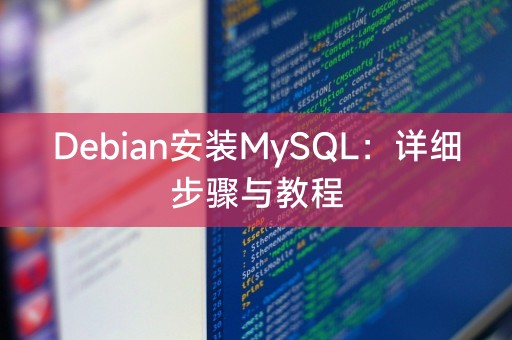
Installing MySQL in a Debian system is a relatively straightforward task, but due to the database configuration and security issues involved, it requires a certain amount of care and patience. This tutorial will provide you with detailed steps and precautions to help You have successfully completed the installation of MySQL.

```shell
sudo apt-get update
```
Install the MySQL server, enter the following command:sudo apt-get install mysql-server
During the installation process , you will be prompted to set the MySQL root user password, please make sure to choose a strong password and remember it.After the installation is completed, basic configuration of MySQL is required.
Run the security script and enter the following command:sudo mysql_secure_installation
According to the prompts, set or change the root password, delete anonymous users, prohibit remote root login, etc.After the configuration is completed, you can use the following commands to start, stop and restart the MySQL service:
```bash
sudo service mysql start # Start MySQL service
sudo service mysql stop # Stop the MySQL service
sudo service mysql restart #Restart the MySQL service
Software in Debian system The package management tool apt-get is a tool used to automatically download and install software packages. Through it, you can easily install, update and delete software. When using apt-get, it is recommended to use the update command to update the software package list first. Make sure to get the latest software version information.
Through the above steps, you should have successfully installed MySQL in the Debian system. During use, if you have any questions or need further help, you can refer to the official documentation or online community resources. I wish you the best. Happy using it!
The above is the detailed content of Installing MySQL on Debian: Detailed Steps and Tutorials. For more information, please follow other related articles on the PHP Chinese website!




